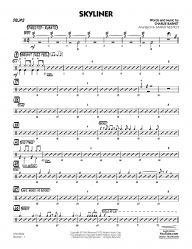SomeBadDrummer
Platinum Member
I have played jazz since high school, some of it fairly complicated. Didn’t ever really nail down the reading part (really regret not putting more effort into that part of it), but it did seem to ‘click’ in my mind. So, while the graphic shown isn’t totally hieroglyphs, I’d have trouble (unable) to play this without hearing it first. Maybe too much time has passed since I read music regularly…use it or lose it.Without an audio reference, this might as well be hieroglyphics:
it's just how I learn, I'm sure others can look at this and hear it exactly as it should be played.
View attachment 107796
Chicago Transit Authority was a very early influence to me when I was first getting serious about playing, some really awesome fusion.



